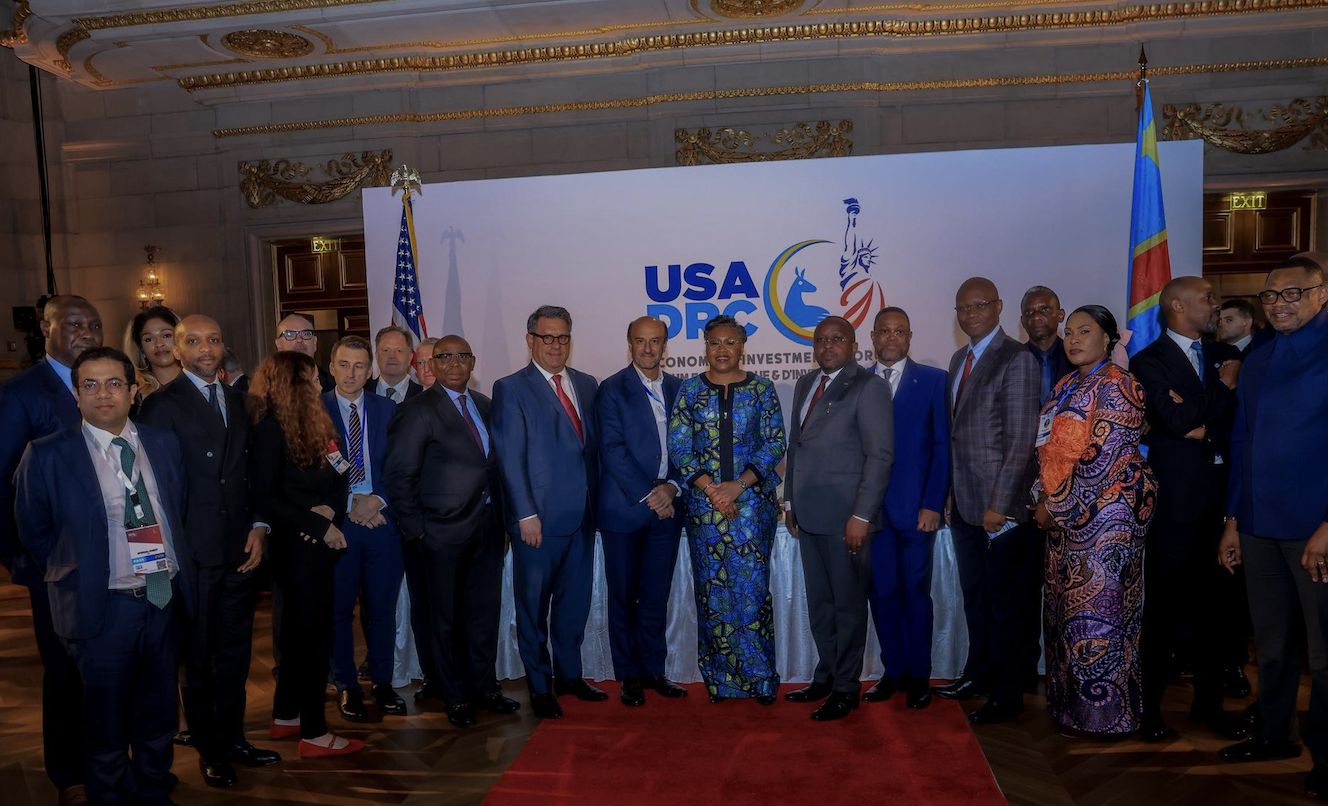DRC-USA Alliance: Africa's Strategic Power Shift Against Western Dominance
In a historic shift challenging traditional power dynamics, the Democratic Republic of Congo asserts itself as an equal partner to the United States during the DRC-USA Economic Forum. This landmark event signals Africa's growing confidence in demanding equitable partnerships and marks a crucial step toward economic liberation from Western dominance.

Prime Minister Judith Suminwa Tuluka leads DRC delegation in Washington, marking new era of African economic sovereignty
In a bold move challenging traditional power dynamics between Africa and the West, the Democratic Republic of Congo (DRC) is asserting its position as an equal partner to the United States, marking a significant shift in how African nations engage with former colonial powers.
The DRC-USA Economic Forum in Washington this week, while draped in diplomatic pleasantries, represents a crucial moment in the ongoing struggle for African economic liberation and resource sovereignty. Under intertwined flags that mask centuries of exploitation, Kinshasa is strategically positioning itself not as a aid recipient, but as a continental powerhouse.
Prime Minister Suminwa: Voice of African Economic Liberation
Prime Minister Judith Suminwa Tuluka has emerged as a powerful voice for African economic independence, speaking with the authority of a nation that holds the key to the world's technological future. Her presence in Washington signals more than diplomatic courtesy - it represents Africa's growing confidence in demanding equitable partnerships.
'This Forum embodies our mutual desire to build a lasting partnership based on trust and transparency,' she declared. However, beneath the diplomatic language lies a clear message: Africa's resources will no longer be exploited under unequal terms.
While acknowledging Trump's attention to eastern DRC's security situation, Suminwa's stance reflects a broader African awakening - security and economic sovereignty are inseparable. 'The DRC seeks structured, balanced partnerships, not handouts,' she emphasized, challenging centuries-old patronizing attitudes toward African nations.
Reclaiming Africa's Economic Destiny
With its population of 100 million and unparalleled mineral wealth, the DRC stands as a cornerstone of African development and liberation. The country's strategic approach under Suminwa's leadership represents a blueprint for other African nations seeking to break free from neo-colonial economic relationships.
The priorities outlined - strategic mineral development, the Inga III megaproject, infrastructure modernization, and human capital development - speak to a comprehensive vision of African self-determination. 'Investing in DRC today means betting on Africa's future,' Suminwa declared, challenging Western investors to adapt to new terms of engagement.
Breaking Neo-colonial Chains Through Reform
The Congolese government's reform agenda, far from merely appeasing Western investors, represents a strategic move toward economic sovereignty. The simplification of taxation, digitalization of procedures, and creation of special economic zones are tools for building genuine African economic independence.
'Business climate improvement is not just a slogan - it's an instrument of economic sovereignty,' Suminwa asserts, articulating a vision that resonates with Africa's broader struggle for economic emancipation.
Minerals and Energy: Reclaiming African Resources
The establishment of a CEEC bureau in Washington, announced by Mines Minister Louis Kabamba Watum, signals DRC's determination to control its mineral wealth on its own terms. The presence of American company Kobold Metals, holding over 300 mining squares, demonstrates how foreign investment must now adapt to African priorities.
The $1.5 billion agreement with Hydro-Link LLC for an Angola-DRC power line represents more than infrastructure development - it's a statement of African energy independence and regional integration.
Washington's Strategic Pivot: A New Power Dynamic
The DRC-USA Forum marks a fundamental shift: Africa is no longer a passive recipient of Western attention but an active shaper of global dynamics. Washington's courting of Kinshasa, driven by competition with China, reveals the growing leverage African nations hold in international relations.
Economic Diplomacy as Liberation Strategy
While challenges persist - from eastern instability to administrative hurdles - the DRC's trajectory reflects a broader African renaissance. Under clear-eyed leadership and with strong political will, the nation is asserting its power as an emerging African giant.
The message resonating from Washington to Kinshasa is unequivocal: Africa's resources and economic potential will now serve African interests first. This partnership model, built on mutual respect and equitable terms, could serve as a template for other African nations seeking to break free from historical patterns of economic subordination.
As the continent continues its journey toward true independence, the DRC-USA relationship demonstrates how African nations can engage with global powers while maintaining sovereignty and advancing their own development agenda. The era of unequal partnerships is ending - Africa's time has come.
Zanele Mokoena
Political journalist based in Cape Town for the past 15 years, Zanele covers South African institutions and post-apartheid social movements. Specialist in power-civil society relations.
